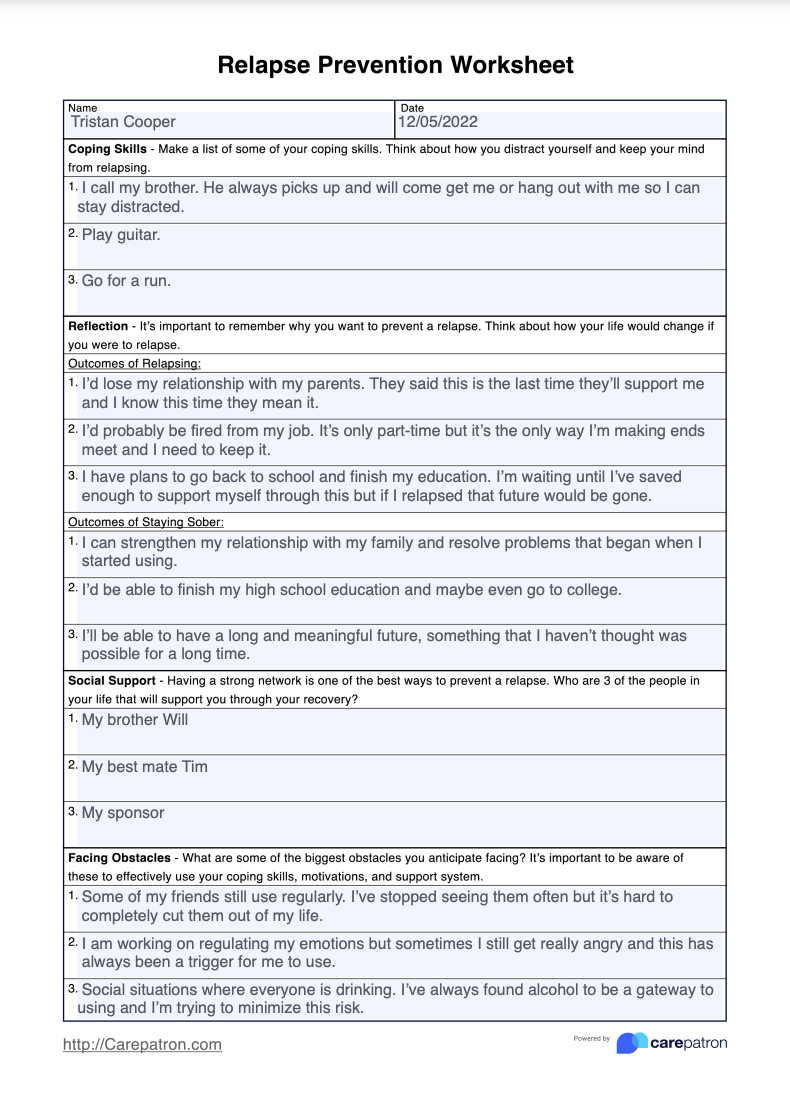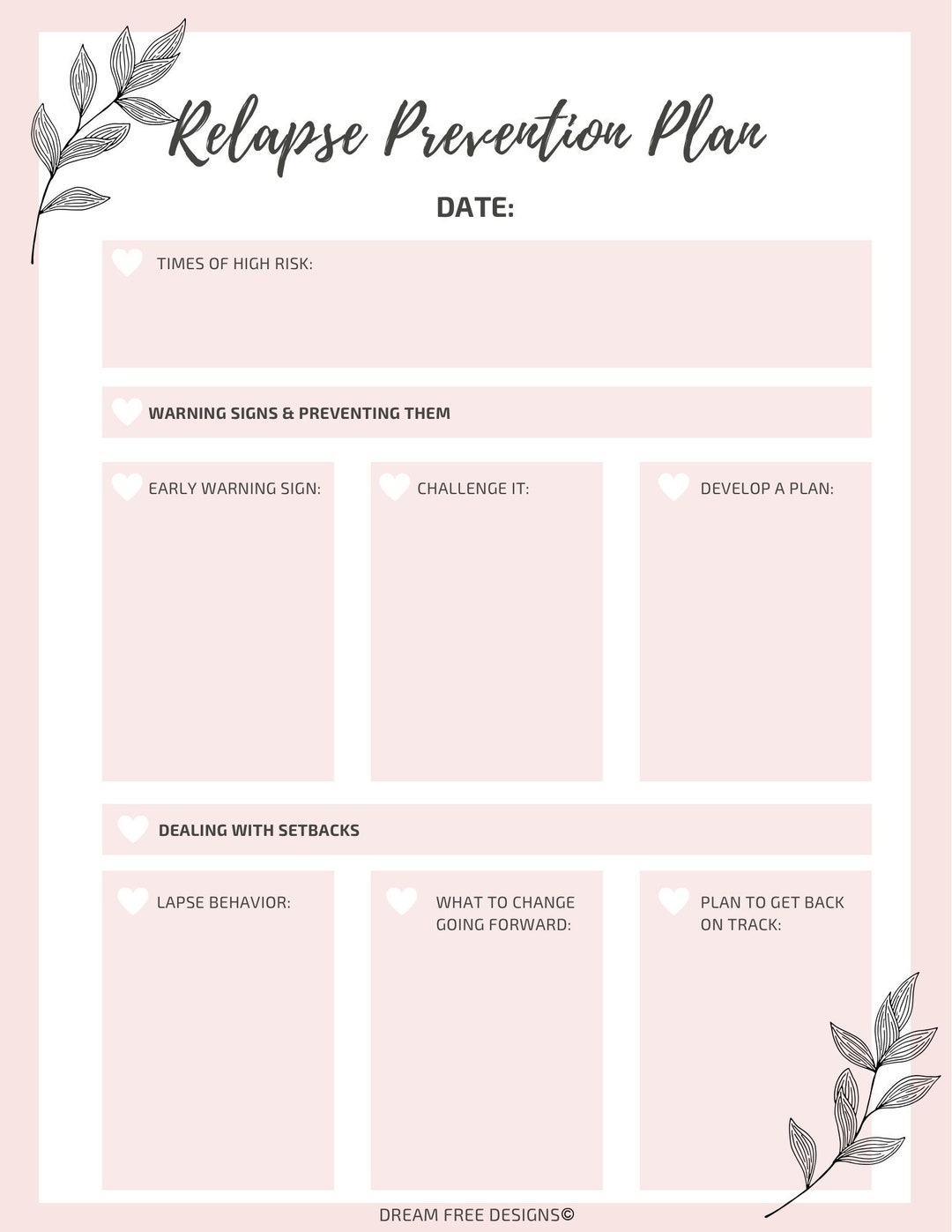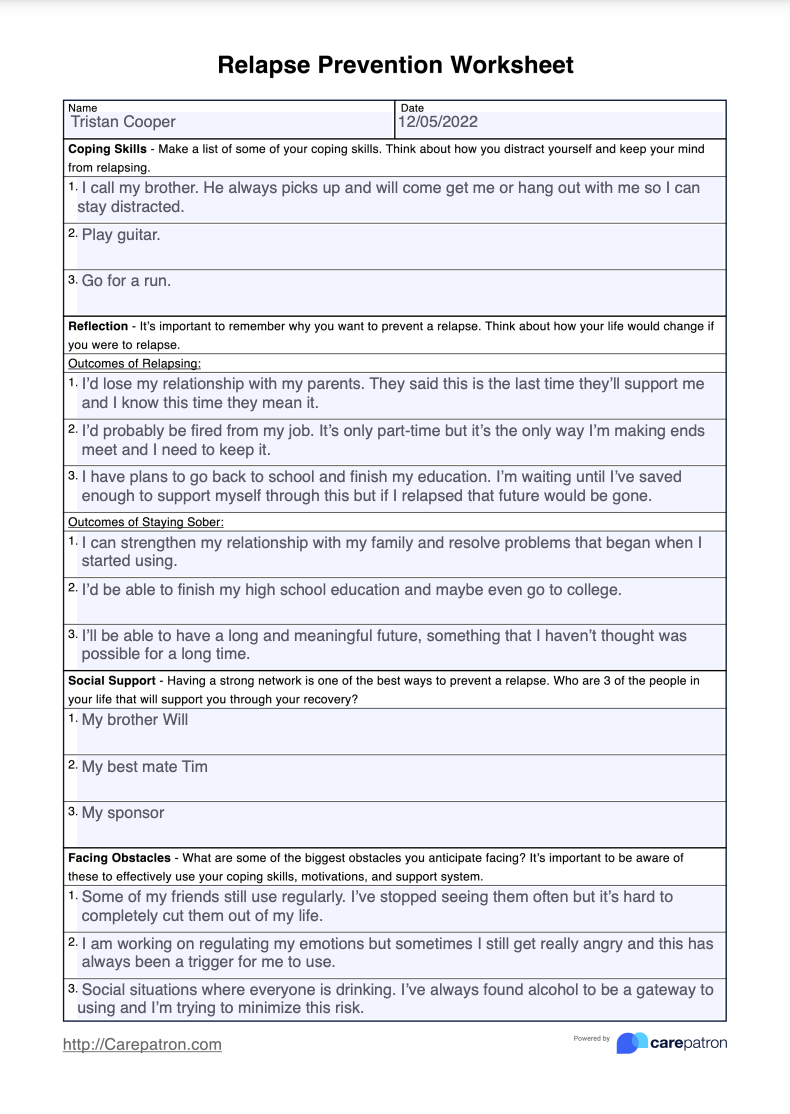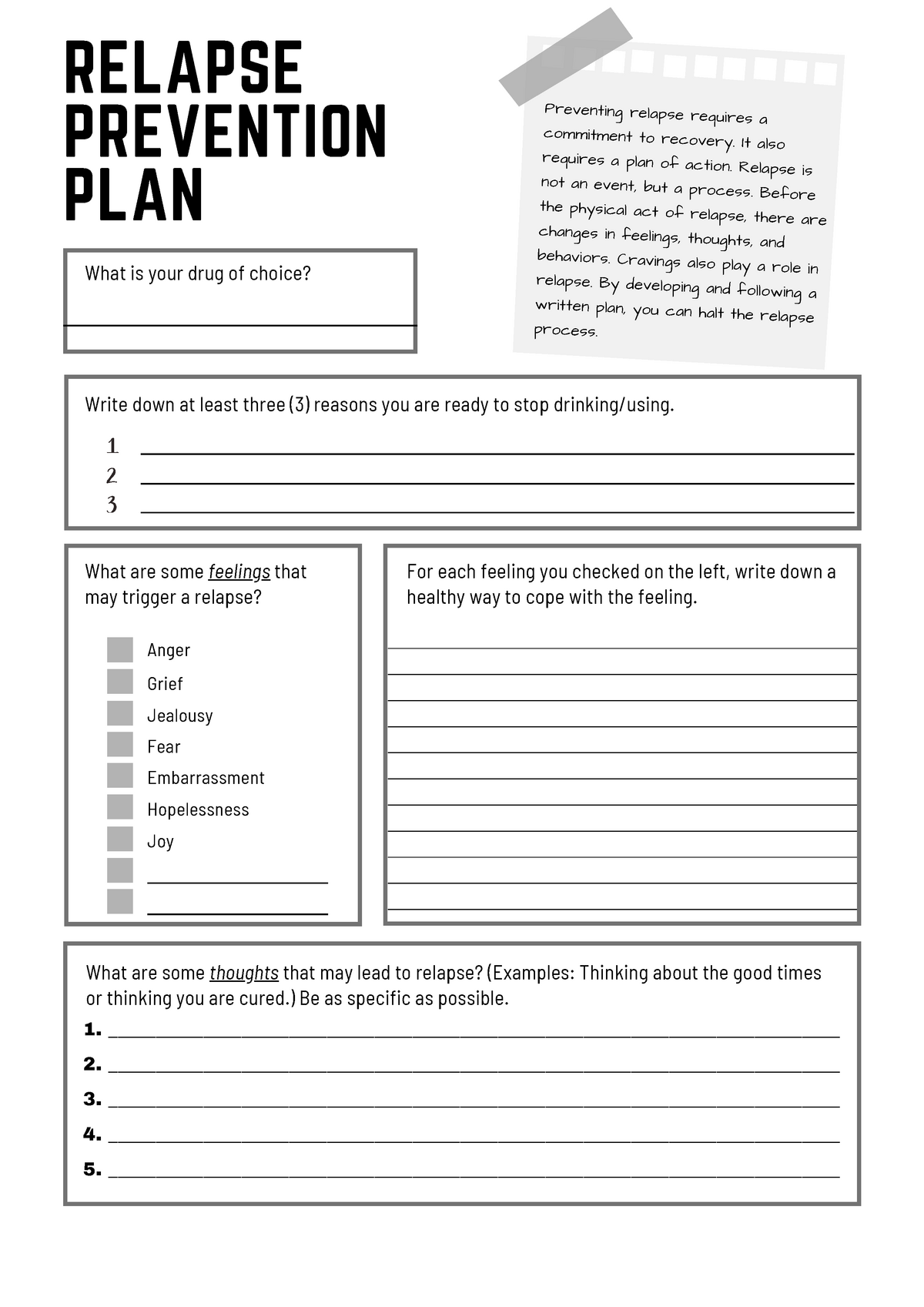5 Printable Worksheets to Prevent Relapse

Relapse is often an unfortunate but not uncommon phase in the journey of recovery from addiction. Whether it's from drugs, alcohol, or other compulsive behaviors, staying vigilant and reinforcing one's recovery process is vital. Here, we discuss 5 Printable Worksheets that can help individuals prevent relapse and fortify their commitment to sobriety.
Worksheet 1: Daily Gratitude Journal

Gratitude journaling can shift focus from negative thoughts to the positive aspects of life, which is crucial in recovery. Here's how you can utilize this worksheet:
- Structure: The worksheet includes prompts for morning and evening entries.
- Morning Routine: Write three things you are grateful for upon waking up. This sets a positive tone for the day.
- Evening Reflection: At night, reflect on three good things that happened during the day, even if small.
💡 Note: A consistent practice of gratitude can significantly reduce stress and improve mood, acting as a shield against triggers that might lead to relapse.
Worksheet 2: Identifying Triggers

Understanding and recognizing personal triggers is a key step in relapse prevention. This worksheet helps in:
- Listing Triggers: Document various triggers by categorizing them into emotional, environmental, and social.
- Response Strategies: Develop coping strategies for each trigger identified.
- Reflection: Reflect on the effectiveness of these strategies over time.
Worksheet 3: Coping Skills Bingo

Coping Skills Bingo is a fun, interactive way to learn and remember various coping techniques. The bingo card includes:
- List of coping mechanisms like deep breathing, calling a friend, or going for a walk.
- Objective to mark off 5 coping methods in a row when used effectively.
Engaging in this game not only makes learning fun but also provides a structured approach to managing stress and potential relapse situations.
Worksheet 4: Goal Setting and Action Plan

Having clear, achievable goals is important in recovery. This worksheet assists in:
- SMART Goals: Setting goals that are Specific, Measurable, Attainable, Relevant, and Time-bound.
- Action Plan: Breaking down goals into manageable tasks and scheduling when to complete them.
By visualizing progress and having a clear plan, individuals can stay motivated and directed towards sobriety.
Worksheet 5: Personal Motivation Letters

A motivational letter written to oneself can be a powerful tool. This worksheet provides:
- Instructions to write a letter to your future self, focusing on why sobriety is important and your personal motivations.
- Date when the letter should be opened, typically during times of struggle or temptation.
Receiving your own words of encouragement when in need can reignite the commitment to recovery.
In summary, these 5 Printable Worksheets are designed to support individuals in their recovery by promoting mindfulness, coping skills, goal setting, and emotional support. They can be used individually or as part of a support group setting. Recovery is a personal journey, and these tools provide a framework for individuals to navigate their path with more resilience and clarity. Remember, the road to sobriety is not just about avoiding relapse but about building a life that values health, relationships, and personal growth.
How can I best incorporate these worksheets into my daily life?

+
Incorporate these worksheets by setting aside dedicated time each day, possibly integrating them into your morning or evening routine. Consistency is key to benefiting from these tools.
Can these worksheets be used in a group therapy setting?

+
Absolutely. They can be shared and discussed in group sessions, providing communal support and insights from various perspectives which can enrich the recovery experience.
What if I find it hard to identify my triggers?

+
Start by reflecting on past relapses or moments when you felt at risk. Discuss with a therapist or support group, and keep an open journal to track patterns or feelings leading up to those moments.